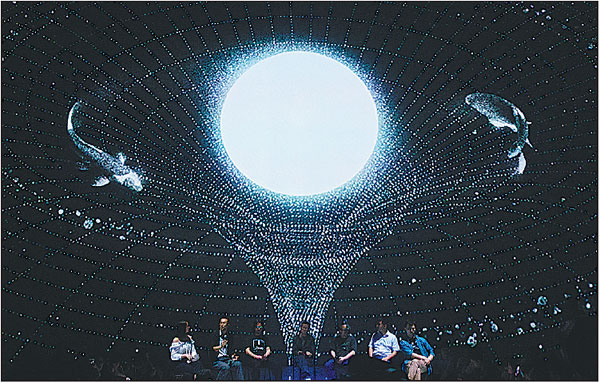Stories of tomorrow
By Xing Yi | Updated: 2017-11-08 07:54
 |
| Guest speakers from fields of IT, art and literature attend a forum on "uploading" organized by Future Affairs Administration and Today Art Museum on Sept 10 in Beijing. [Photo provided to China Daily] |
Idea generator
The workshop is organized by Future Affairs Administration, a company which is trying to seize the opportunities created by the growing popularity of science fiction over the past three years, since the success of writer Liu Cixin and his book, The Three-Body Problem, the first installment of a trilogy, which won the Hugo Award for Best Novel in 2015, after being translated into English.
The Three-Body series has so far sold around 7 million copies in Chinese, and 300,000 copies in English.
In the spotlight as the first Chinese writer to win the world's top award for science fiction writing, Liu has drawn lots of media exposure to Chinese sci-fi. The 54-year-old, used to be an engineer and wrote sci-fi only in his part time, but he has been enrolled into the China Writers Association.
Ji Shaoting, a former journalist with Xinhua News Agency and a longtime friend of Liu, founded Future Affairs Administration as a loose group of sci-fi aficionados in 2013.
She incorporated it into a company in 2016, with the aim of paving the road for Chinese science fiction to enter a "golden age".
"I think people can be a little bit more curious about the future through science fiction," says Ji at Kubrick Book Cafe in Beijing MOMA, where her company has an office.
Beijing MOMA is an office complex with a sci-fi appearance as the buildings are connected by aerial walkways.
"If there is ever a sci-fi movie set in Beijing, this is the place to shoot," Ji jokes.
























